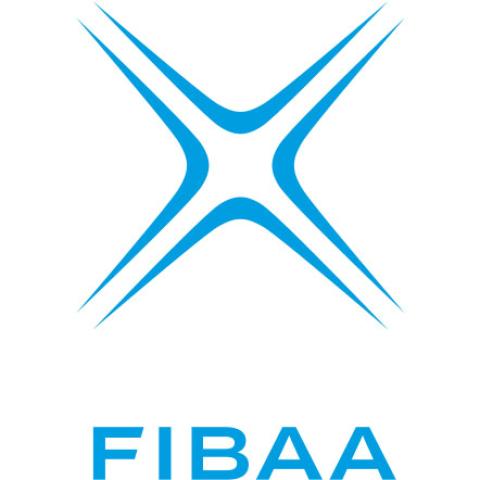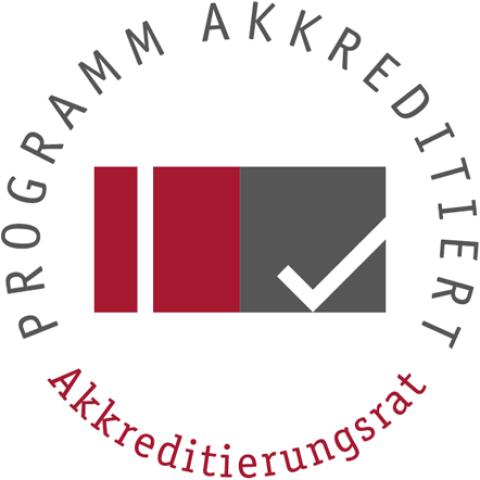Bridging Computer Science, Technology and Business
Computer Science for Business is a multidisciplinary study programme that bridges the gap between technical and management aspects. On the technical side, the programme explores data science topics, not just for management reports or big data, but also for specific products, such as data management in electric cars. It also covers AI and machine learning, focusing on how AI can assist with data science projects and quality control.
On the business side, you will learn everything needed to lead IT projects or IT departments, including project planning, budgeting and team leadership. This programme is ideal for those with a technical background, an interest in IT-business and an entrepreneurial drive.
Degree
Master of Science 90 ECTS
Study location
Göttingen
Length of study
3 semesters (1.5 years)
Start dates
April 1st (except for 2025) and October 1st each year
Entry requirement
Bachelor's degree or equivalent in a degree programme with the focus on IT, a year of professional experience and knowledge of Programming, Business Administration and English (B2)
Tuition fees
€5,940 per semester;
€1,000 admin and enrolment fee (one-off fee)
€1,000 examination fee (one-off fee)
Study content
The Master's programme lasts three semesters, during which you not only acquire the skills to work in companies in the area of computer science but to also be a product owner or strategic planner in similar fields. You will gain practical knowledge through numerous projects and case studies in each semester. In preparation for the job market, you will not only acquire the needed theoretical knowledge in the field of computer science, but will also acquire important skills to help you apply this knowledge to practice and learn how to use the relevant tools. In addition, you will be able to oversee projects with different frameworks and work with others to create a successful product. A scientific-theoretical orientation of the Master's programme can be seen when looking at current research statuses in the lectures, as well as in the preparation of scientific papers.

Module 1: International Human Resources Management
Students learn to develop effective HR strategies that consider global labour markets, cultural diversity and international business practices. They become familiar with further principles and guidelines for international companies with regard to personnel recruitment, deployment and management. In addition, the module enhances understanding of internal and external accounting, teaching students to work with key figures and develop strategic recommendations. A simulation game helps them apply social and professional skills in an equally application-orientated way.
Module 2: IT Architecture
The IT Architectures course teaches students to plan, organize and manage IT systems in a business context. Students will learn to design IT architectures, set evaluation criteria, make strategic decisions and conduct risk assessments. Topics include operating systems, virtualisation, networking, identity management, access control, cloud services and security. The course concludes with case studies on visualisation techniques, management tools and the impact of IT architectures on business operations.
Module 3: Information and Knowledge Management
In this module, you will learn how to manage and use information and knowledge effectively in businesses. You will discover how to improve and design processes, focusing on things like how information flows, where data is stored and using machine learning with big data sets. The course also teaches you how to gather and organise information, use collaboration tools and make sure your data is accurate. The emphasis is on hands-on skills, such as sharing, preserving or combining knowledge and managing information strategically to help create lasting business solutions.
Module 4: IT Platforms and Interfaces
The IT Platforms and Interfaces course focuses on managing and optimising IT systems and data flows in businesses. Students learn to analyse and implement IT platforms, design specifications and evaluate technologies for master data management and system integration. The course also covers practical skills in API management, enterprise architectures and different service models (SaaS, PaaS, IaaS), concluding insights into industry-specific platforms. Modern interface technologies along with legacy integration provide an important foundation for management decisions.
Module 5: Specialisation I
AI & Data Science & ML
In this module, students learn how to analyse data and gain insights from it. Data governance is an important basis for this in order to be able to work with reliable data. They also discover how neural networks work, how they can be constructed and improved. The Python programming language plays a central role as the basic technology for Maschine Learning. Students also learn to recognise and assess the potential applications and advantages of such tools.
IT Management & IT Services
Students develop an IT strategy that fits the corporate strategy and derive IT services for implementation in the company. In IT risk management, they learn how to assess technical, organisational and strategic risk factors using case studies. They also acquire knowledge about concepts and control in IT service management. With the help of case studies, they recognise challenges and develop solutions for IT service management.
Module 6: Business Process management
The Business Process Management (BPM) module focuses on process-oriented approaches in companies. Students will learn BPM fundamentals, including defining, designing and improving processes. They will use modelling methods to enhance efficiency, quality and flexibility, thereby applying techniques such as simulation and risk analysis. The course covers BPM tools for modelling and automation, their integration with other management disciplines and the cost-effectiveness of BPM investments.
Module 7: Information Security Management
This course teaches students how to safeguard IT systems and data. The course addresses the creating and implementing of Information Security Management Systems (ISMS). You will learn about security threats, data protection laws and privacy regulations. The course covers how to assess risks, create security measures and develop training programmes. You will also learn to design secure systems, implement monitoring and manage security incidents, while becoming familiar with key national and international security standards and frameworks.
Module 8: IT Project- and Development Management
The "IT Project and Development Management" course teaches students how to successfully manage IT projects and software development within companies. You will learn essential concepts and tools for designing and planning projects, thereby evaluating different methodologies and project approaches and implementing them effectively. Key areas include requirements engineering, agile methodologies as well as practical skills such as budgeting, quality assessment and documentation. By the end, you will be equipped to handle all stages of IT projects, from the initial design to the final rollout.
Module 9: Research Seminar
The seminar on writing scientific papers in IT equips students to produce high-quality research on recent technologies. Students will explore, analyse and present complex IT topics using various research methods, including source selection, literature reviews and data analysis. The course covers advanced topics like AI, machine learning and Web3 / Blockchain, and helps students develop skills in organising and presenting their research effectively.
Module 10: Specialisation II
AI
Students learn the professional use of Artificial Neural Networks (ANN) and AI systems. They can develop and evaluate company-specific AI applications based on models, in particular Large Language Models (LLMs). LLMs are often an important component of interactive and generative AI. In ‘Prompt Engineering’, students learn to create context-related prompts and implement prompt-based automation.
IT Operations & IT Controlling
Students learn how basic concepts of company organisation are implemented in information processing. They will be able to harmonise cloud solutions and on-premise systems to create stable, secure and highly available IT structures. In IT controlling, for example, they gain insights into IT key figures, budgeting and cost accounting. They also learn how to create meaningful reports and evaluate their results.
Module 11: Project / Practice Module
Students can choose between writing a scientific paper, an eight-week internship with a research project or a semester abroad with a research component. They tackle topics from current or concluded research, as well as linking theory and practice in their reports. The module involves deepening existing knowledge, applying project management methods and working independently or in teams. For the semester abroad option, students write a paper at a partner institution, with the International Office assisting with course selection and credits.
Module 12: Master’s Thesis
Am I eligible for the Computer Science for Business Master's degree programme?
Admission requirements
- A Bachelor's degree or equivalent, preferably with a background in informatics, data science, computer science or a technical field (natural sciences)
- A year of professional experience
- Knowledge of programming and business administration
Language requirements
- English proficiency at a minimum level of B2 (CEFR), to be certified with:
- English language certificate: TOEFL iBT score 86, IELTS score 6.5, Duolingo or equivalent.
- Alternatively, a document stating that the medium of instruction for your Bachelor’s course was English.
Career opportunities for Computer Science graduates
With the Computer Science for Business programme, you would have the opportunity of working in a position that connects technical and management aspects. This means that you will have the skills and knowledge to manage projects but also understand the technicalities of an issue. Therefore, you will be well equipped to pursue a great variety of jobs with this degree.
-
IT Project Manager
Responsible for planning, executing and finalising IT projects while sticking to strict deadlines and staying within budget; coordinating resources, managing stakeholders and ensuring high quality standards; utilising project management methodologies to achieve successful project outcomes.
-
Data Science and Machine Learning Specialist
Accountable for the designing and implementation of machine learning models and data analysis; working on big data projects to derive actionable insights and optimising processes; collaborating with cross-functional teams to integrate AI solutions into business operations.
-
IT Security and Compliance Analyst
In charge of ensuring the security and integrity of IT systems by implementing robust security measures; monitoring compliance with legal and regulatory requirements; conducting risk assessments and developing incident response plans; educating staff on cybersecurity best practices.
-
Business Process Manager
Overseeing the design, implementation and optimisation of business processes; utilising modelling techniques to improve efficiency, quality and flexibility; analysing processes to identify improvement opportunities and integrating BPM software into existing systems.
-
Scientific Research Coordinator
Managing the development and completion of scientific research projects related to IT technologies; ensuring proper methodology, data collection and analysis; guiding students through research processes while maintaining high standards of academic integrity.

Job Guarantee
Since there are plenty of job openings in the German job market, we are confident our students will find jobs quickly after they finish studying. That's why we're offering a 20% refund on full tuition fees if they don't land a job within 9 months of graduating.
To be eligible for the refund, the student must have:
- successfully completed their studies within the regular study period,
- attained a minimum GPA of 2.5 upon graduation,
- shown proof of a B2 level German language proficiency in the form of a certificate.
Receive more information

Experts at PFH

Stefan Wagenpfeil has worked as a consultant in the field of mechanical engineering for several large international companies. His involvement at the PFH is characterized by practical projects and innovative research.

Frank Albe worked for the TUI Group, where he was involved in the reorientation of the group and investment controlling. He has worked at PFH since 2000 and was elected President of the University in 2014.

Joachim Ahrens has extensive teaching experience, for example in the area of Executive Education. He has done research at Harvard, Stanford and Berkeley University.

André Presse has extensive experience as a company founder and an associate in several companies in the field of digitalisation, sustainability and media.
FAQ – the most frequently asked questions
At PFH University, you can apply at any time.
- Application form via our website
- Curriculum Vitae (CV)
- Letter of motivation
- School leaving certificate (University Entrance Certificate)
- Bachelor's degree certificate (or provisional certificate, if not yet awarded)
- Transcript of records for your Bachelor's degree
- Proof of English proficiency (minimum B2 level)
- English language certificate: TOEFL iBT 86, IELTS 6.5, Duolingo, or equivalent.
- Document stating that the medium of instruction of your Bachelor’s course was English.
- An employment reference is optional, though highly recommended
- Copy of passport
- Digital photo for your university card
- Chinese, Vietnamese, and Indian students must obtain an APS Certificate from the Academic Evaluation Center to complete the admission process.
Yes, you will need proof of advanced English language skills, e.g., Bachelor’s taught in English, TOEFL iBT score 86, IELTS score 6.5, Duolingo, or equivalent.
If you are a citizen of a country in the EU, EEA or Switzerland, you do not require a visa or other documentation to enter Germany and study here. However, once you arrive and find accommodation, you must register with the local residents’ registration office.
If you come from a country other than the ones named above, you will require a visa. For more information specific to your home country, please visit the Federal Foreign Office website.
At PFH University, we offer international students three types of scholarships:
- STIBET-Programmes
- DAAD Prize
- Deutschland Stipendium/Germany Scholarship
For more information on each of the scholarships, click here.
During your studies, you are generally allowed to do 120 full days or 240 half-days of paid work and take small student jobs. In exceptional circumstances, your local Foreign Office may impose further restrictions.
International students coming to Germany have two options when it comes to accommodation: student halls of residence and private accommodation. For more information, you can visit the Accommodation Finder of the Federal Ministry of Education and Research or contact our International Office.
When you compare Germany to other European countries, you’ll find that it’s not very expensive. The living costs are just slightly higher than the EU average, with rent being the largest expense. On average, students in Germany spend around 850 EUR per month (750 EUR in Göttingen for the management degree).



